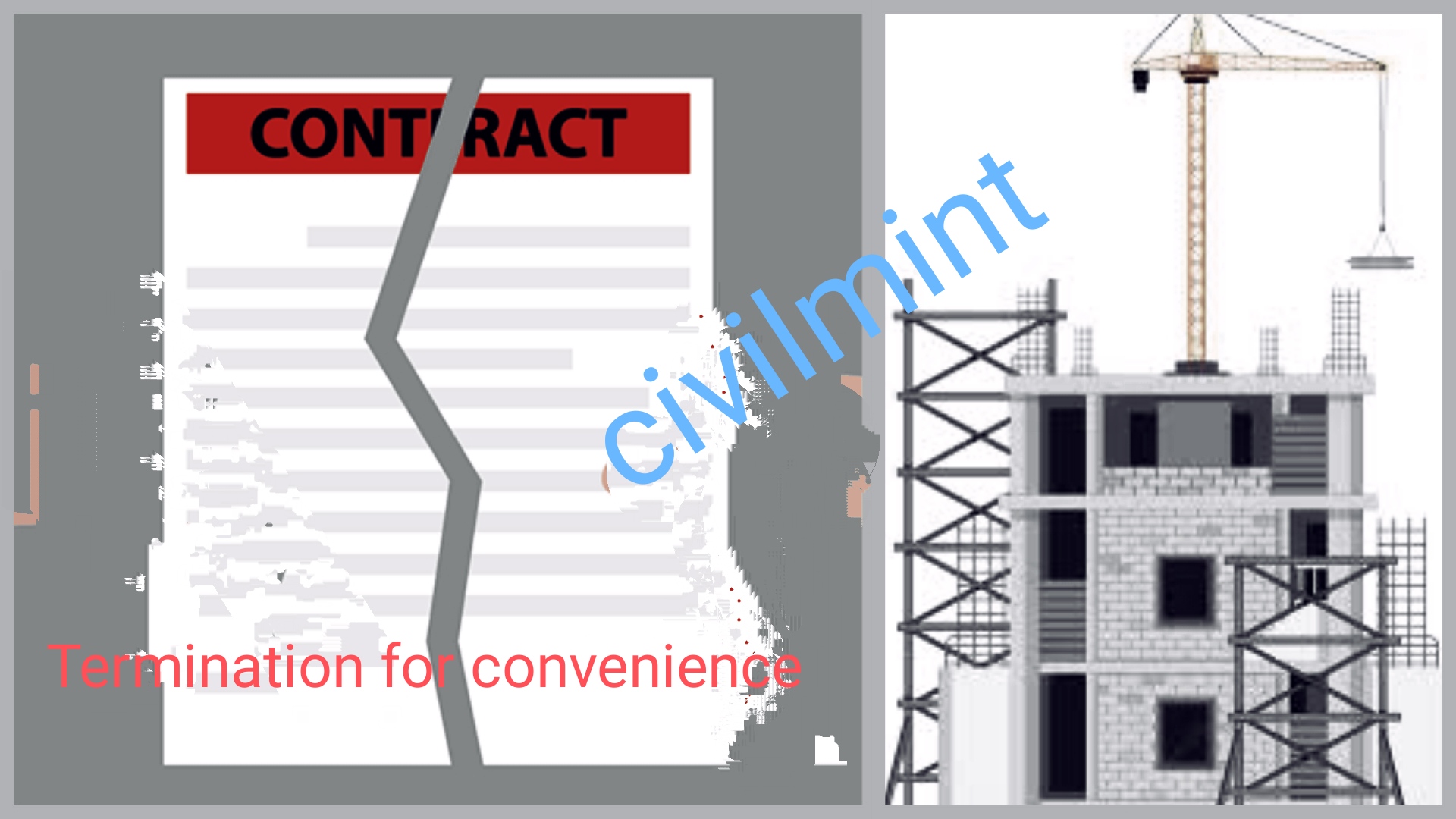The termination for convenience is very important in construction contracts. In this clause, a party can terminate the contract for various reasons.

Table of Contents
Description Of Termination for convenience Clause
Termination for convenience refers to ending a contract simply because one party no longer wishes to continue it, without necessarily being related to performance issues or breach of contract.
This type of termination is often less costly than other forms of termination, such as default or breach, which may require legal intervention.
Parties may include a termination for convenience clause in a construction contract for various reasons, such as to account for market changes or unexpected events.
This clause allows one or both parties to terminate the agreement without cause.
However, a termination for convenience cannot be exercised deceptively or in bad faith, as all contracts entail an implied covenant of good faith and fair dealing.
The American Institute of Architects provides a template for the verbiage used in a termination for convenience clause, which may include language such as “The owner may, at any time, terminate this agreement for the owner’s convenience and without cause.”
How It Works?
If a company is a party to a contract that contains a termination for convenience clause, they may wonder how to exercise this.
Typically, the contract will include language outlining the necessary steps to take in order to exercise this right.
In most cases, all that is required is written notice of termination to all parties involved in the contract.
This notice must express a desire to terminate, identify the clause under which the right to terminate has been exercised, and indicate the effective date of termination (e.g., 90 days from the date notice is received).
Once a termination for convenience clause has been exercised, there are costs that one or more parties may need to pay in order to fully wind down the contract.
These costs can include payment for work already performed by the contractor prior to the termination for convenience, as well as wind-down costs associated with the termination of any subcontracts or vendor agreements impacted by the termination.
Some termination for convenience clauses may also allow the terminated contractor or subcontractor to be paid for profits they might have earned at the end of the fully-performed contract if it had not been terminated, but this will require its own provision in addition to the general termination for convenience clause.
Conclusion
When a construction contract does not have a termination for convenience clause, termination without cause, default, or breach may result in the terminated contractor or subcontractor being entitled to any lost profits in the project due to termination.
Termination for convenience clauses were traditionally used in government construction transactions, but they are now becoming more popular in private-sector contracts.
If you are a prime contractor and come across such a clause in a contract, it is important to ensure that any subcontracts to that agreement also include a similar clause.
This is to avoid being held responsible for paying a subcontractor for work that you will not receive payment for.
By using a termination for convenience clause, both parties can benefit from greater flexibility in the event that circumstances change during the project.
